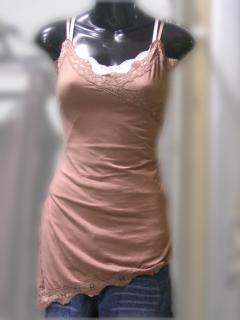
I’ve written in a previous post about when “retail therapy” can become an addiction-like problem known as Compulsive Buying. This month, as a result of the efforts of my past academic supervisor and his colleague, I have been fortunate enough to see published some of the results of research on Compulsive Buying that I conducted for my DPsych thesis. The paper, Experimental analysis of the relationship between depressed mood and compulsive buying, will be in the June 2013 issue of the Journal of Behavior Therapy and Experimental Psychiatry.
The paper reports results of two studies we conducted examining interaction between depressed mood and compulsive buying behaviour. Past research, largely using self-report questionnaires, has established that there is a relationship between depressed mood and compulsive buying. For example, a study by Faber and Christenson in 1996 found that 96% of people who buy compulsively thought that buying could alter their mood, in contrast to this belief being held among only 25% of the general population.
We wanted to see what we could find out about the relationship between mood and compulsive buying by using an experiment involving buying-related conditions, instead of simply asking people questions about their buying beliefs and behaviour.
Do compulsive buyers pay more attention to desirable products when they are depressed?
Previous research has shown that compulsive buyers in part shop as a strategy to compensate for depressed mood. In our first experiment we tried to test the hypothesis that because they believe products can compensate for low mood, compulsive buyers who were triggered to feel depressed would pay more attention to products they like than they would if in a neutral mood. We attempted to test this by comparing memory performance of compulsive shoppers and non-compulsive shoppers in artificially created depressed and neutral mood conditions. In order to influence participants’ moods they were asked to listen to a piece of music that was either neutral or associated with lowered mood, while at the same time thinking about situations associated with either a neutral or depressed mood respectively.
We first found out what each person in each group liked the most out of a set of products. Then we looked at rates of errors participants made identifying which of these products they were or were not shown in a short sequence. Basically, we expected compulsive buyers who were feeling depressed would tend to pay more attention to the products they liked and therefore make fewer errors recalling those items.
What we found was nearly the opposite. The appeal of items had no influence on memory for any group. However, non-compulsive buyers made significantly fewer errors correctly identifying products they saw while depressed than while their mood was neutral. Compulsive buyers, on the other hand, were just as likely to make mistakes when depressed as when not.
To interpret this result we can really only speculate. Perhaps compulsive buyers, when depressed, were more distracted from the memory task because their attention was directed to a perceived need to compensate for their low mood?
Do compulsive buyers associate products with emotions?
For our second experiment we wanted to examine whether compulsive buyers mentally associate products they buy with positive and negative emotions. Our experiment involved another memory task: This time pairing images of products with words reflecting either a positive emotion, negative emotion or a function (non-emotional words).
Generally it is easier to remember pairs of things that have some kind of relationship. For example, remembering the words “car” and “tyre” as a pair will be easier than remembering “parrot” and “bucket” because the first pair are more closely related.
Our prediction was that the average person would be more likely to remember a product paired with a functional word than a product paired with an emotional word – because an product’s function has more connection to the product for most people than an emotion does. However we expected compulsive buyers would better remember pairings of emotional words with appealing products than pairings of those products with functional words.
What we found was that the average person made the same rates of errors regardless of the type of pairing. Compulsive buyers, however, made more errors remembering products, whether appealing or not, paired with non-emotional words. Additionally, if a product was not appealing to the compulsive buyer then more errors were made remembering that object paired with a positive emotion.
These findings do seem to show there is some tendency for emotional ideas to be associated with products in different ways by compulsive buyers than by the average person. It seems that products generally had a stronger association with negative emotions than functions, but that only appealing products were associated with positive emotions.
Coping by feeling
I previously wrote, in my post “Buying your way to happiness, or despair?“, about other research showing that compulsive buying is associated with a perception of being unable to tolerate distress. Our research, which tried to confirm with experiments that distress in the form of depressed mood contributes to compulsive buying, is less compelling in its findings than the study on distress tolerance and experiential avoidance. However, we did find there are differences between compulsive buyers and the general population in the associations between products and mood.
I personally believe that future research in this field will continue to reinforce that trying to cope with unpleasant feelings by making those feelings go away – in this case, by shopping – just creates more problems in the long-run. What I see in my practice, for a wide variety of problems, is that the best way to cope with distressing emotions, in the long run, is to learn to feel those emotions instead of believing that those emotions must be stopped as quickly as possible.
It is okay to be sad. While we don’t like to feel sad, we don’t need to rush to make those feelings go away. All feelings pass, with time.


Leave a Reply